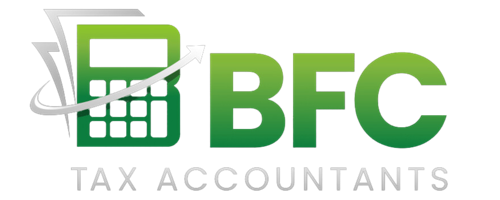As a business owner, you have many responsibilities and tasks to handle every day. You may think that you can save money by doing your own accounting, but this can be a costly mistake in the long run. Accounting is not just about crunching numbers and filing taxes. It is also about planning, strategizing, and optimizing your business finances. Hiring an accountant can provide you with many benefits that can help you grow your business and achieve your goals. Here are some of the reasons why you need an accountant for your business success:
Save Time and Reduce Stress
One of the most obvious benefits of hiring an accountant is that you can save time and reduce stress. Accounting can be a tedious and complex process that requires attention to detail, accuracy, and compliance. If you try to do it yourself, you may end up spending hours or days on tasks that are not your core competencies.
You may also make mistakes or miss deadlines that can result in penalties, fines, or audits. By hiring an accountant, you can delegate these tasks to a professional who has the skills, knowledge, and experience to handle them efficiently and effectively. You can then focus on other aspects of your business that need your attention, such as marketing, sales, customer service, product development, etc. You can also enjoy more peace of mind knowing that your accounting is in good hands.
Save Money and Maximize Tax Benefits
Another benefit of hiring an accountant is that you can save money and maximize tax benefits. An accountant can help you reduce your tax liability and take advantage of tax deductions, credits, incentives, and exemptions that you may not be aware of or eligible for. An accountant can also help you avoid costly tax mistakes, such as underpaying or overpaying taxes, missing tax deadlines, filing incorrect or incomplete tax forms, or claiming inappropriate or invalid expenses.
An accountant can also help you plan ahead for your tax obligations and prepare your tax returns accurately and timely. By hiring an accountant, you can ensure that you pay the right amount of taxes and keep more money in your pocket.
Comply with Laws and Regulations
Another benefit of hiring an accountant is that you can comply with laws and regulations that affect your business. Accounting is not only about numbers but also about rules. There are many laws and regulations that govern how you should record, report, and disclose your business finances. These include federal, state, and local tax laws, as well as industry-specific standards and best practices. If you fail to comply with these laws and regulations, you may face legal consequences, such as penalties, fines, audits, lawsuits, or even criminal charges.
By hiring an accountant, you can ensure that your accounting is done according to the latest and relevant laws and regulations. An accountant can also help you stay updated on any changes or updates that may affect your business.
Manage Your Finances
Another benefit of hiring an accountant is that you can manage your finances better. Accounting is not only about reporting what happened in the past but also about planning for the future. An accountant can help you analyze your financial data, such as income, expenses, cash flow, profit, loss, assets, liabilities, equity, etc.
An accountant can also help you create and monitor budgets, forecasts, projections, and financial statements that can help you make informed and strategic decisions for your business. An accountant can also help you identify and address any financial issues or challenges that may arise, such as cash flow problems, debt management, inventory control, pricing strategies, etc. By hiring an accountant, you can have a clear and comprehensive picture of your business finances and performance.
Support Your Business Growth
Another benefit of hiring an accountant is that you can support your business’s growth. Accounting is not only about maintaining your current business operations but also about expanding your business opportunities. An accountant can help you explore and evaluate new markets, products, services, partnerships, investments, etc. An accountant can also help you prepare and present financial reports and proposals to potential investors, lenders, partners, customers, etc.
An accountant can also help you set and achieve your business goals and objectives, such as increasing revenue, reducing costs, improving profitability, enhancing customer satisfaction, etc. By hiring an accountant, you can have a trusted and reliable partner who can help you grow your business and reach your potential.
How to Hire an Accountant for Your Business
As you can see, hiring an accountant can provide you with many benefits that can improve your business in various ways. However, not all accountants are the same. You need to find an accountant who is qualified, experienced, reputable, and compatible with your business needs and preferences. Here are some tips on how to hire an accountant for your business:
- Determine your accounting needs and expectations. Before you start looking for an accountant, you need to define what kind of accounting services and support you need and expect from your accountant. For example, do you need an accountant to handle your bookkeeping, taxes, payroll, auditing, consulting, or all of the above? Do you need an accountant to work with you on a regular basis or on a project basis? Do you need an accountant who is familiar with your industry or niche? Do you need an accountant who can use your preferred accounting software or system?
- Ask for referrals and recommendations. One of the best ways to find a good accountant is to ask for referrals and recommendations from people you know and trust, such as your friends, family, colleagues, peers, mentors, advisors, etc. You can also ask for referrals and recommendations from other professionals or organizations that work with accountants or provide accounting services, such as your bank, lawyer, chamber of commerce, trade association, etc.
- Do your research and due diligence. Once you have a list of potential accountants to hire, you need to do your research and due diligence to verify their credentials, qualifications, experience, reputation, and compatibility. You can do this by checking their websites, online profiles, reviews, testimonials, references, portfolios, etc. You can also contact them directly and ask them questions about their services, fees, availability, communication style, etc. You can also request a consultation or a trial period to see how they work and if they meet your expectations.
- Compare and choose the best accountant for your business. After you have done your research and due diligence, you need to compare and choose the best accountant for your business. It would help if you considered various factors, such as their skills, knowledge, experience, reputation, fees, personality, etc. You need to weigh the pros and cons of each accountant and see who can provide you with the most value and benefit for your business. You also need to trust your intuition and choose an accountant who you feel comfortable and confident working with.
Why Choose BFC Tax Accountants for Your Business
BFC Tax Accountants is a full-service accounting firm that provides a wide range of accounting services and solutions for small and medium-sized businesses (serving Innisfil, Barries and Simcoe County). Whether you need help with bookkeeping, taxes, payroll, auditing, consulting, or any other accounting needs, BFC Tax Accountants can handle them for you. BFC Tax Accountants has a team of qualified, experienced, and reputable accountants dedicated to helping you achieve your business goals and objectives. The firm also uses the latest technology and software to ensure that your accounting is done accurately, efficiently, and securely.
If you are interested in hiring BFC Tax Accountants for your business, contact us today to schedule a free consultation. We will be happy to discuss your accounting needs and expectations and show you how we can help you improve your business finances and performance.





